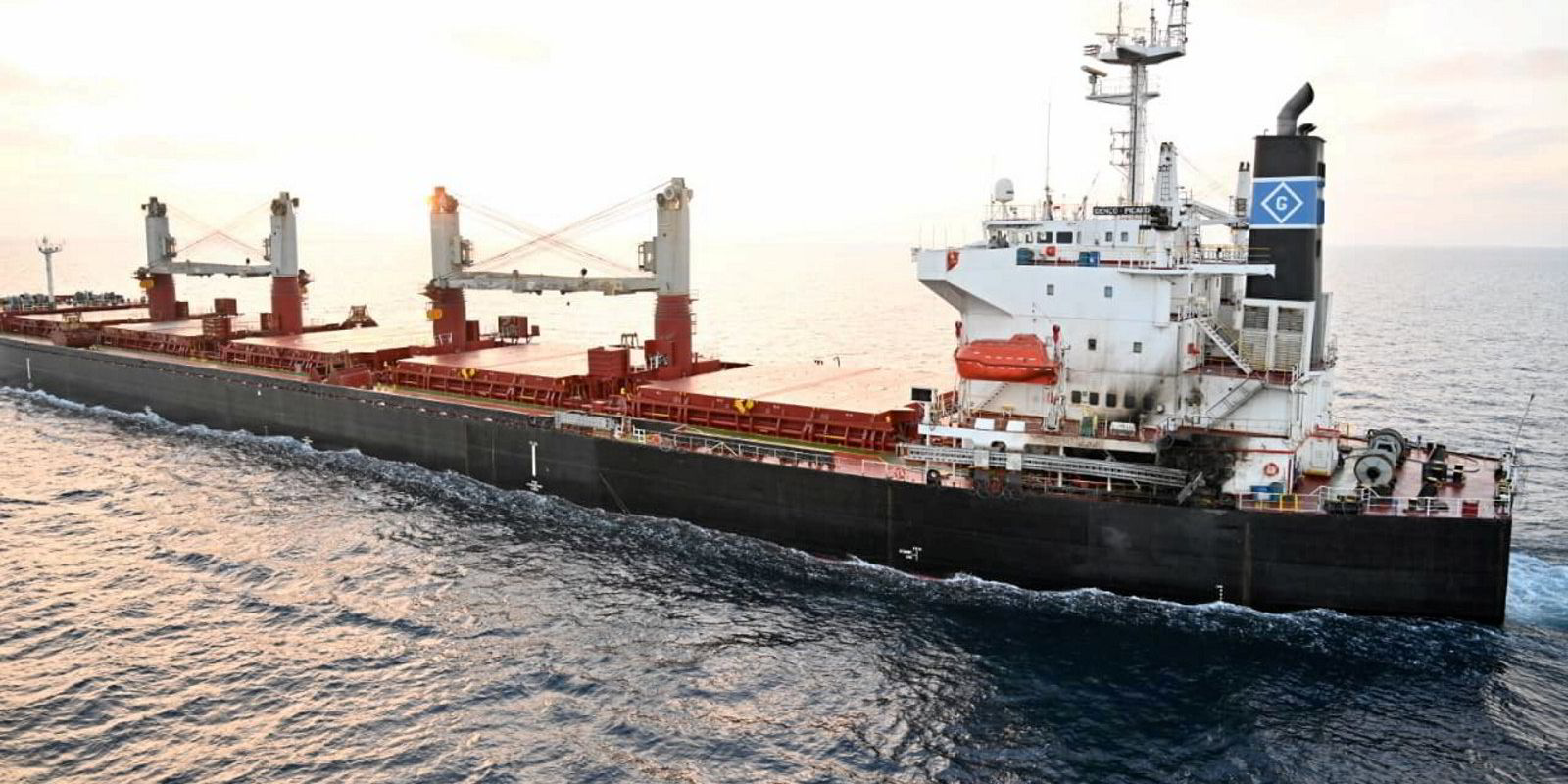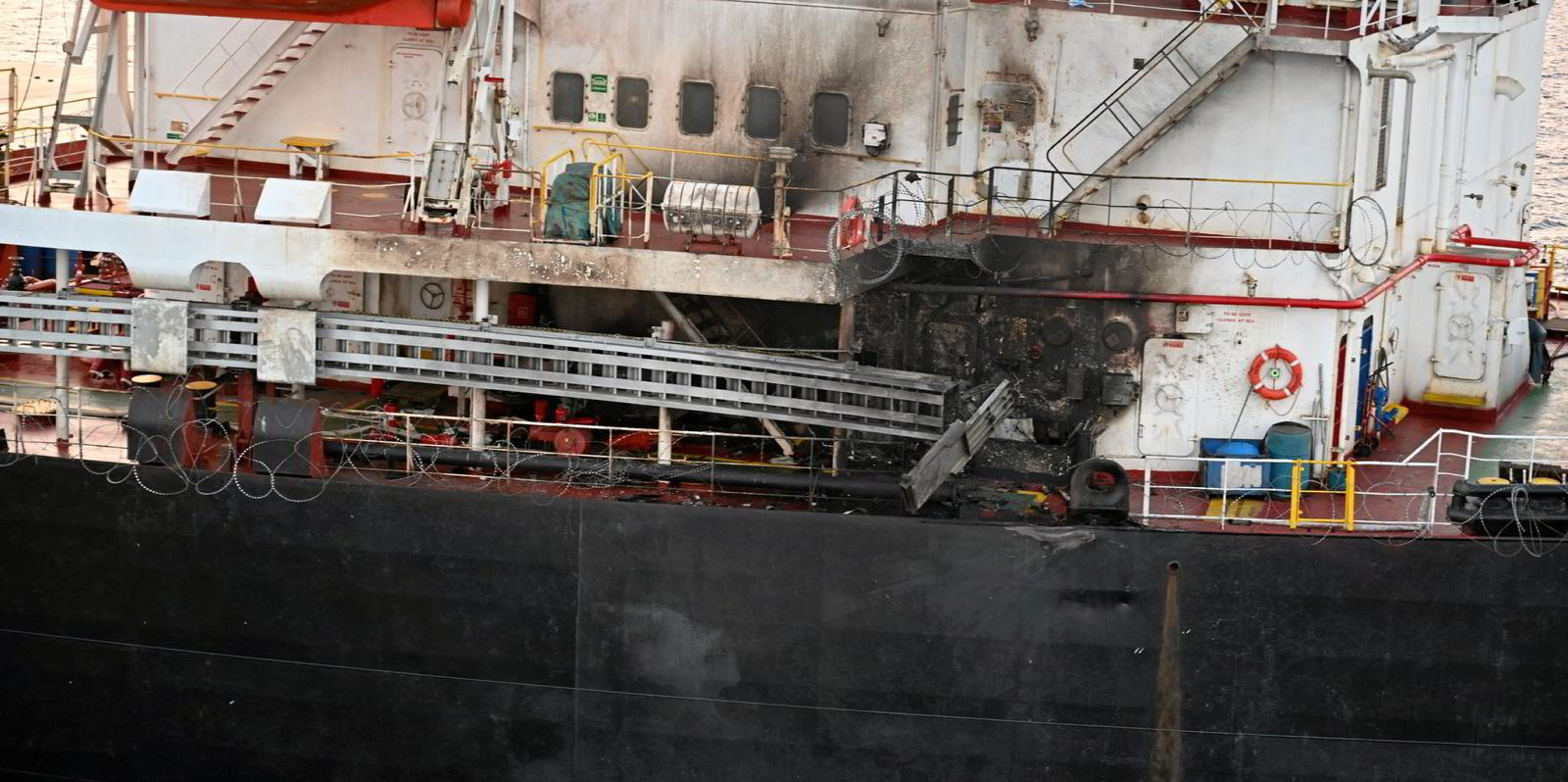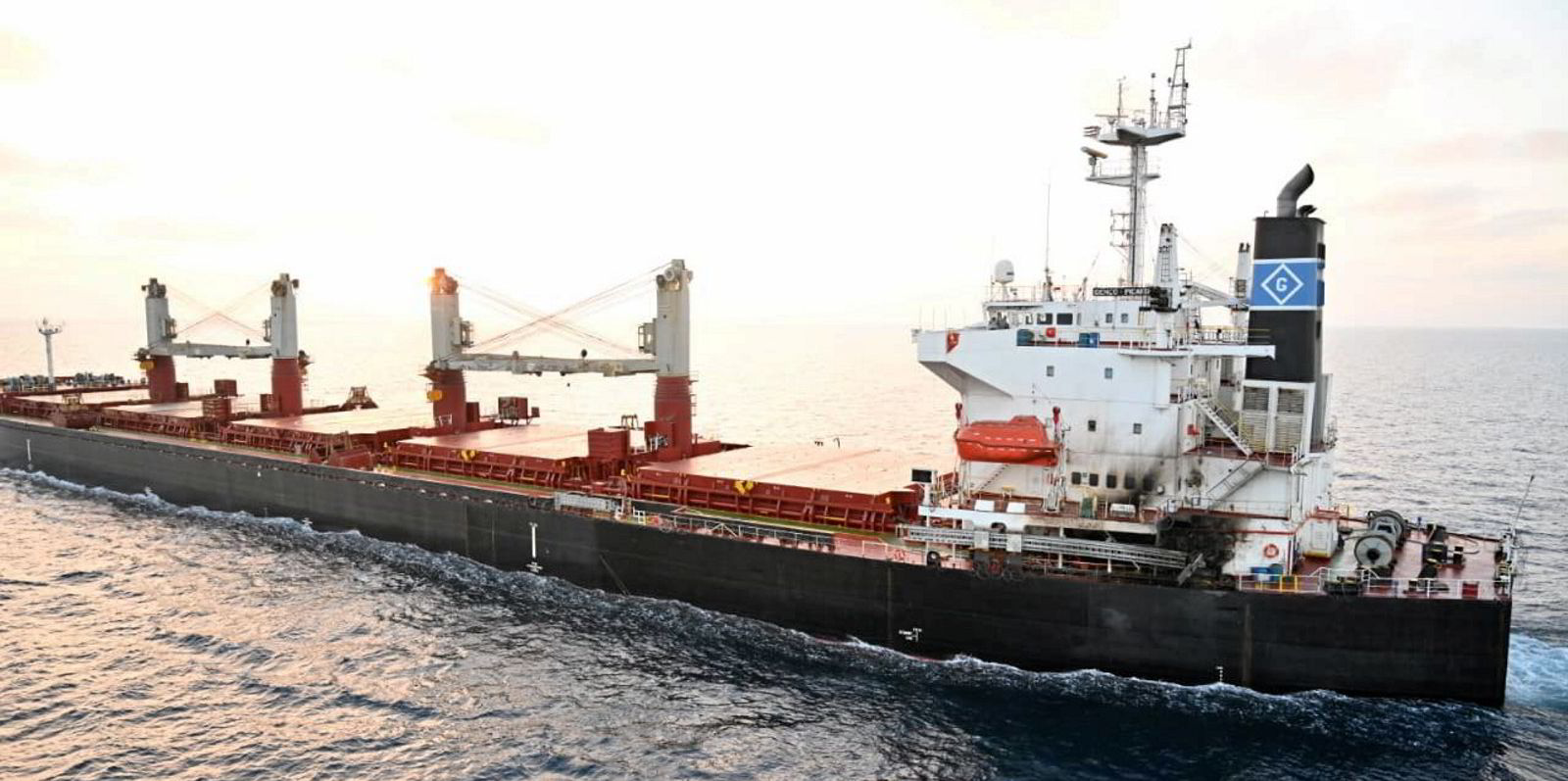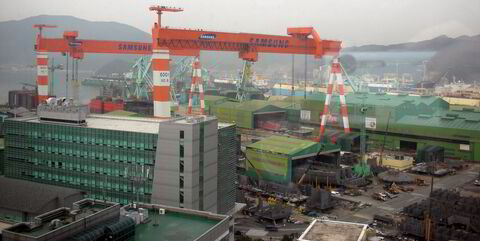The attacks on US-owned and operated ships in the Red Sea and Gulf of Aden are pushing more vessels to avoid the region.
The decisions to divert mounted as the Houthis claimed to have targeted a US-flagged commercial ship on Monday, which would be the fourth to come under fire in a little over a week.
New York-based Genco Shipping & Trading said it would avoid the region after its 55,300-dwt bulker Genco Picardy (built 2005) was hit on Wednesday last week in the Gulf of Aden and then reported drones nearby a day later.
The company said on Saturday that the vessel was safely outside the “area of heightened concern” in the Gulf of Aden.
“At this time, Genco has no additional ships operating in or bound for the southern Red Sea or Gulf of Aden, and we will continue to redirect vessels around the Cape of Good Hope until such time as the prevailing security situation has improved,” the New York-listed bulker owner said in a LinkedIn post.
Eagle Bulk Shipping, whose 64,000-dwt ultramax Gibraltar Eagle (built 2015) was damaged in an attack in the Gulf of Aden, has taken a similar decision.
“Given the security situation in the Southern Red Sea/Gulf of Aden, we are currently avoiding the area and directing all vessels via the Cape of Good Hope,” chief executive Gary Vogel told TradeWinds.
Another bulker company, Rhode Island-based Pangaea Logistics Solutions, began eschewing Suez Canal routes even earlier.
“The safety of our crews and our ships is our highest priority, and we adjusted to the fast-changing situation in the region when the attacks on commercial shipping started late last year,” chief executive Mark Filanowski told TradeWinds.
“We have not passed through the area since then, but this is not a trade that we are involved in regularly.”
The diversions are not limited to the bulker sector.
Miami-based Royal Caribbean Group revealed on 18 January the cancellation of two voyages in the Middle East to avoid the troubled area, and the itinerary of a cruise from Aqaba, Jordan, to the Omani port of Muscat was changed to take passengers to Athens instead.
“Our global security team continues to closely monitor the situation in the region and we will make additional changes if required,” the company said in a statement.
The rerouting of ships comes after a string of attacks on US-linked vessels since Washington led air and navy strikes against Houthi targets in Yemen.

On Monday, TradeWinds reported that the Iranian-backed Houthis claimed to have targeted the 10,700-dwt heavylift ship Ocean Jazz (built 2010), although the US Navy later refuted the claim, stating that the alleged attack was unsuccessful.
On 18 January, the 26,200-dwt tanker Chem Ranger (built 2010), which is owned by Texas-based Delos Shipping, reported missiles landing near the vessel, which was undamaged.
Since 15 January, three days after the first coalition strikes on Houthi targets in Yemen, the US Maritime Administration has been warning ships to avoid the region because of a “high degree of risk” in the Southern Red Sea.
“While the decision to transit remains at the discretion of individual vessels and companies, it is recommended that US-flag and US-owned commercial vessels remain north of 18N in the Red Sea or east of 46E in the Gulf of Aden until further notice,” the agency said in an alert.






